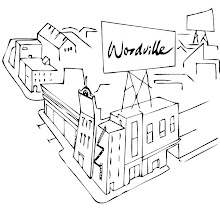How important are the people behind the brands?
Everyone knows the big names behind Virgin, Apple and News International but do they contribute to the way people feel about their brand? Rupert Murdoch certainly has seen how his actions can affect his business.
Brands are always fighting to become more human and customers are always after that personal touch. After all, everyone wants to be wanted.
Richard Branson, to some people, is seen as a big figure head in the business world. Rated as the UK’s 4th richest citizen in Forbes’ 2011 list of billionaires, it’s clear to see he’s doing something right. And it’s not just his business ventures and accomplishments that people aspire to – he’s a real person. He’s a family man - this was clear to see when his holiday home was destroyed.
But he’s also not afraid of adventure. He launched his first business at just 16, and now heads up a multinational conglomerate with over 400 companies worldwide.
A brand needs to be likable, interesting and human for it to make an impression on a large scale. Maybe Branson has all those qualities and that’s what’s been behind Virgin’s billions.
But some house-hold brands, that are just as well-loved, if not more, hide their CEOs from the limelight.
Mulberry, a quintessentially British brand, started out producing fishing bags and jackets, inspired by the country pursuits of hunting and shooting. It was only after the brand grew throughout the UK and internationally that the iconic Bayswater was born.
But have you ever seen Mr Mulberry – or Roger Saul as he is officially known? No. Even after he left in 2002, the faces behind the brand have never really entered the limelight.
For the company that was started with £500 Saul was given for his 21st, it hasn’t always been an easy ride. A brand that is now known for quality and luxury was once seen as ‘stuck in the countryside’.
After nearly sinking in the 90s, the company went through an extreme image overhaul. Rather than shoving the brand’s backers into the limelight, strategists chose to celebrate the famous faces of those who have inspired collections – Alexa Chung & Lana Del Ray. These ladies have revitalised the brand, lending it a cool-factor that has contributed to its cult status.
There’s no doubt that placing a face behind, or at least beside a brand, adds value. But does it need to be the founder? Of course an individual who has started a successful business from scratch will always be a source of intrigue. However, without a little charisma, without that… je ne sais quoi, their connection with the brand has very little commercial value. If this is the case, it would be far more worthwhile bringing Brandgelina into the mix.
By Stephanie Rock


